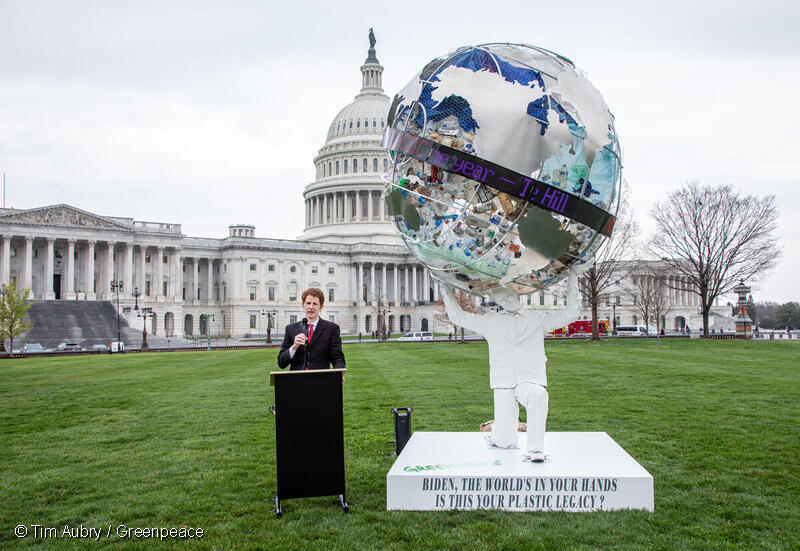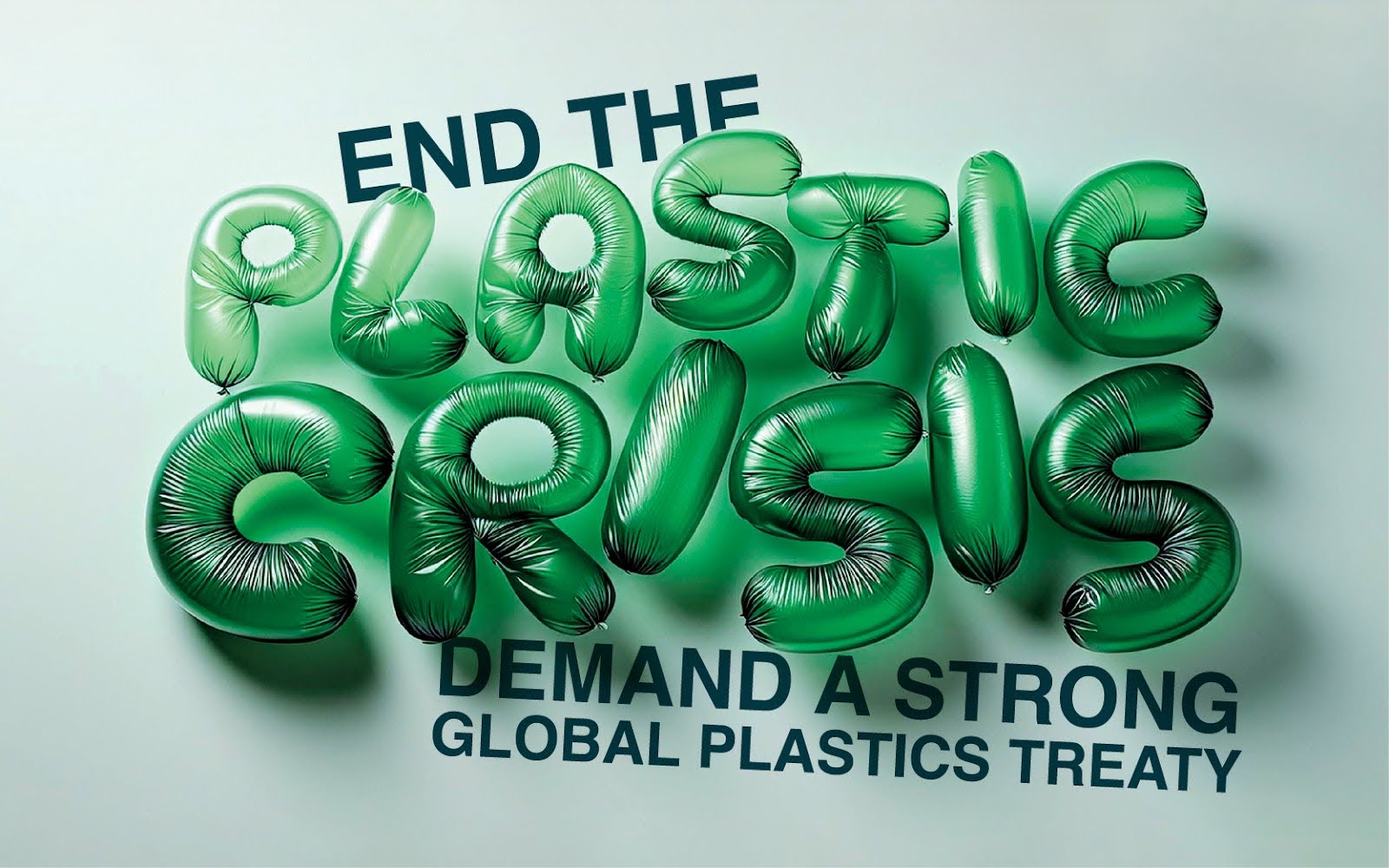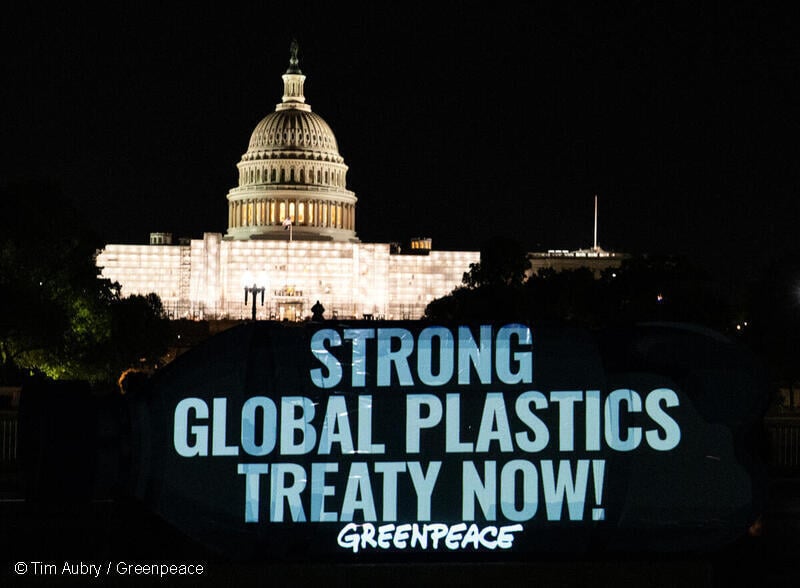
The 15-foot monument, “Biden’s Plastic Legacy,” is modeled after the figure in Greek mythology, Atlas, who carries the world on his shoulders. The new monument depicts a world full of plastic pollution and its impacts on human health that U.S. President Joe Biden will carry on his shoulders if he does not show strong leadership.
Dr. Leo Trasande, a respected doctor who has extensively researched the health risks of plastics, provided insights into the human health impacts of plastic pollution.
Washington, D.C. (July 18, 2024)—In response to the new strategy released by the Biden-Harris Administration today on mobilizing federal action on plastic pollution, John Hocevar, Greenpeace USA Ocean’s Campaign Director, said: “We are pleased to see the Biden-Harris administration finally taking steps to address the plastic pollution crisis. We have known for decades that plastic pollution is poisoning our bodies, communities, and oceans, and millions of people worldwide have called for our leaders to end the age of plastic. The government-wide strategy is a good step in the right direction, particularly in acknowledging that plastics are polluting at every stage of their lifecycle and the planned phase-out of federal procurement of single-use plastics from all federal operations by 2035. We hope that these measures will set the stage for meaningful dialogue on how the United States can align its domestic policies with international efforts.”
The fourth session of the Intergovernmental Negotiating Committee (INC4) for a Global Plastics Treaty concluded in April 2024 on a disappointing note, as negotiations yielded to the interests of the fossil fuel and petrochemical industry. Despite some progress driven by the efforts of states such as Rwanda, Peru, and the signatories of the Bridge to Busan declaration in pushing to reduce plastic production, compromises in the outcome neglected essential cuts in plastic production. This divergence from what science requires and justice demands hampers the treaty’s potential effectiveness. The State Department’s position that the U.S. cannot support measures requiring states to go beyond existing federal law further poses the risk of severely undermining the strength of the Treaty. This stance prioritizes the interest of major oil and gas corporations over the imperative to limit their production, hindering efforts to protect public health and the environment. The fifth and final round of Plastics Treaty negotiations will take place in Busan, South Korea, this November.
Hocevar continued: “At this point, everyone knows that we cannot recycle our way out of this crisis. We need the US to lead by advocating for a strong international agreement that cuts plastic production by at least 75% by 2040, ends single-use plastic, and ensures a just transition for impacted communities. Almost two-thirds of Americans support a Global Plastics Treaty that would ban single-use plastic packaging. This November, the Biden-Harris Administration has an opportunity to secure a strong legacy on environmental protection by taking decisive action on plastic pollution that meets their commitment to ambitious actions that address the full lifecycle of plastic, which must include its extraction as oil and gas to disposal and failed systems of chemical recycling.”
###
Notes to the editor:
Photos are available in the Greenpeace Media Library
Greenpeace USA is part of a global network of independent campaigning organizations that use peaceful protest and creative communication to expose global environmental problems and promote solutions that are essential to a green and peaceful future. Greenpeace USA is committed to transforming the country’s unjust social, environmental, and economic systems from the ground up to address the climate crisis, advance racial justice, and build an economy that puts people first. Learn more at www.greenpeace.org/usa.



